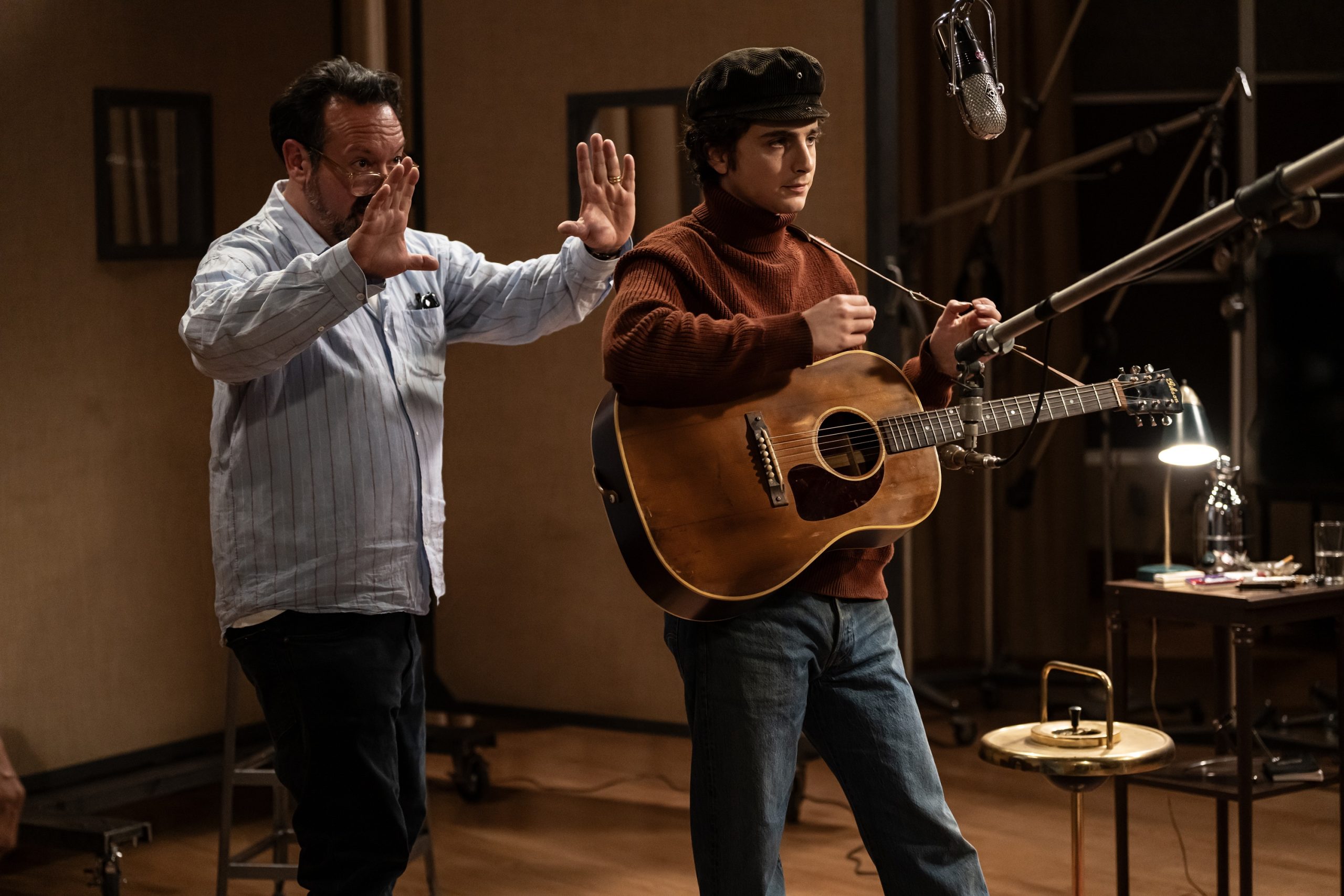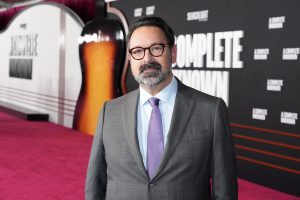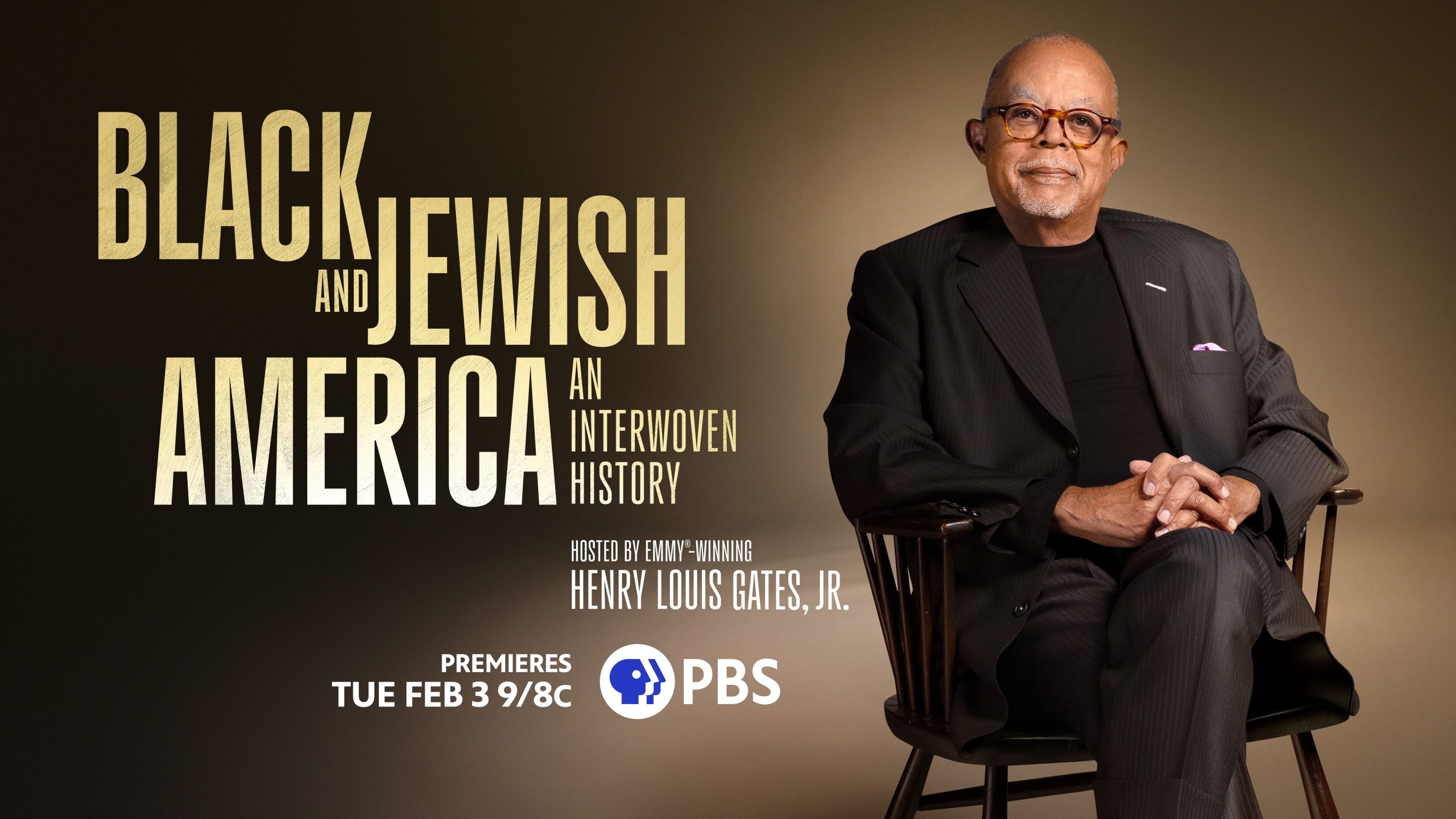
In a Critics Choice press conference for A Complete Unknown, director James Mangold touched on how Walk the Line influenced his approach.
Writer-director James Mangold participated alongside actors Timothée Chalamet, Edward Norton, Elle Fanning, Monica Barbaro, and Boyd Holbrook. CCA member Scott Mantz moderated. My question, directed towards the filmmaker, was among the last ones picked during the roughly 32-minute conversation. The below transcript is courtesy of Searchlight Pictures.
A Complete Unknown focuses on the period between Bob Dylan’s arrival in Greenwich Village in the early 1960s and his going electric at the 1965 Newport Folk Festival. Mangold and co-writer Jay Cocks adapted their script from Elijah Wald’s Dylan Goes Electric! Newport, Seeger, Dylan, and the Night That Split the Sixties. The book adds additional context and insight about this era in music history. Do not go into the film expecting a documentary. There are plenty of those, including a pair about Dylan at the Newport Folk Festival.
Walk the Line walked so A Complete Unknown could run. See it in theaters now!

How did your experience directing Walk the Line influence your approach to A Complete Unknown?
James Mangold: Well, I felt like it gave me confidence about instincts that I had, things I had tried on that move that I wanted to go even further with. When I suggested early on this movie in conversations with the producers in the studio and Bob Dylan’s people like, “No, it’s okay. We won’t need your recordings. We’re going to make our own.” Everyone was like, “What do you mean?” And I go, “Well, we can’t have Timmy talking with his own voice and then having Bob’s voice come out his mouth, like some ventriloquist dummy–that’s never going to work.” And the confidence I had, which then got matched by Timmy’s ambition and discipline, meaning I tried to clear the way for the idea that everyone would sing their own parts and play their own parts. But Timmy kind of took it up another level in the sense that we laid down all these as part of our preparation.
We laid down what’ll be a soundtrack album full of music in the studio. But then we started shooting and the first scene we did, you guys have seen the movie, the first scene with singing in it that we did was the one in which he sings “Song for Woody” to Woody Guthrie in the hospital. And Timmy came to me and said, “I just want to do it.” And there was this whole moment on set where people behind the scenes are like, “Well, the shots will never cut. He’ll be singing a different tempo from one shot to the next and we can’t get a good recording here. And duh, duh, duh.” And I have my hats off to Timmy because he was the one who was like, “I just want to do it.” And he did. And all I did was run interference for him in the sense of going, “Whatever happens, we can fix it later.”
And of course it was nothing to fix later. Everyone could just breathe. And he was not only marvelous in that scene, but he also proved the validity or the method to the madness because there were ways he bent the song that he never could have done if he was listening to something in an ear wig. There were choices he made that he was just free to act even in the same way with the music as one would with the dialogue or action. Free of it.
And it was such a powerful lesson to me. And in terms of what your question is, it’s the experience making Walk the Line, if I had not made a movie like this before and I had the technical people coming at me from every direction with their heads exploding going, “This will never work, it’ll never cut, and you need to talk to the editors, it’s never going to work. It’s never going to cut.” And I might’ve hesitated, but I had a feeling because we had pushed those boundaries before that with actors this good, if you give them a space to fill, you might get lucky. They might actually fill it. And then that’s exactly what happened here.
A Complete Unknown is now playing in theaters.
Please subscribe to Solzy on Buttondown and visit Dugout Dirt.






